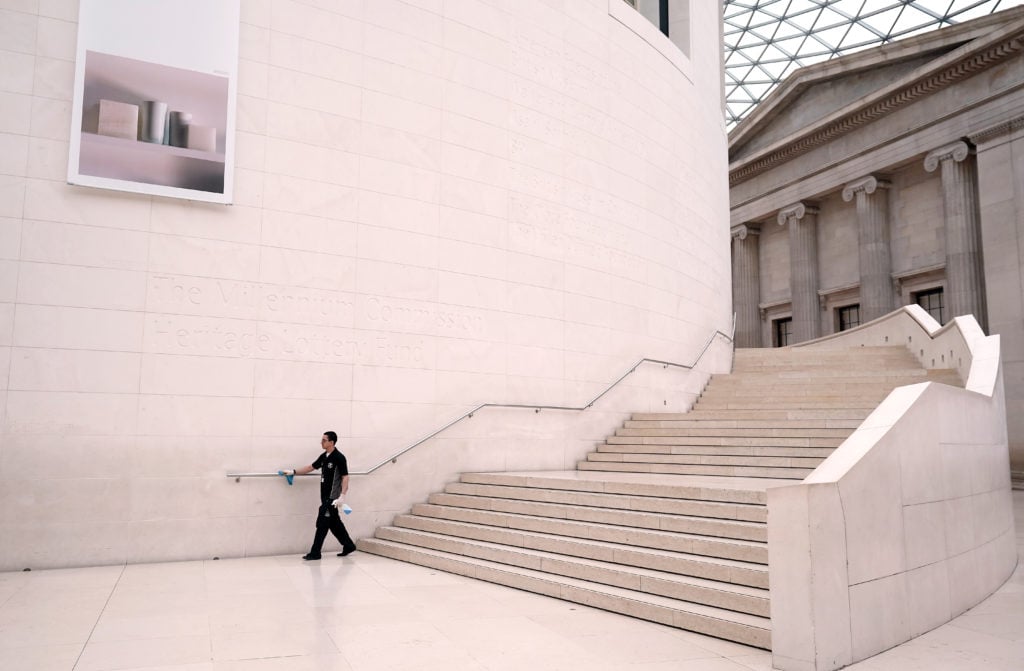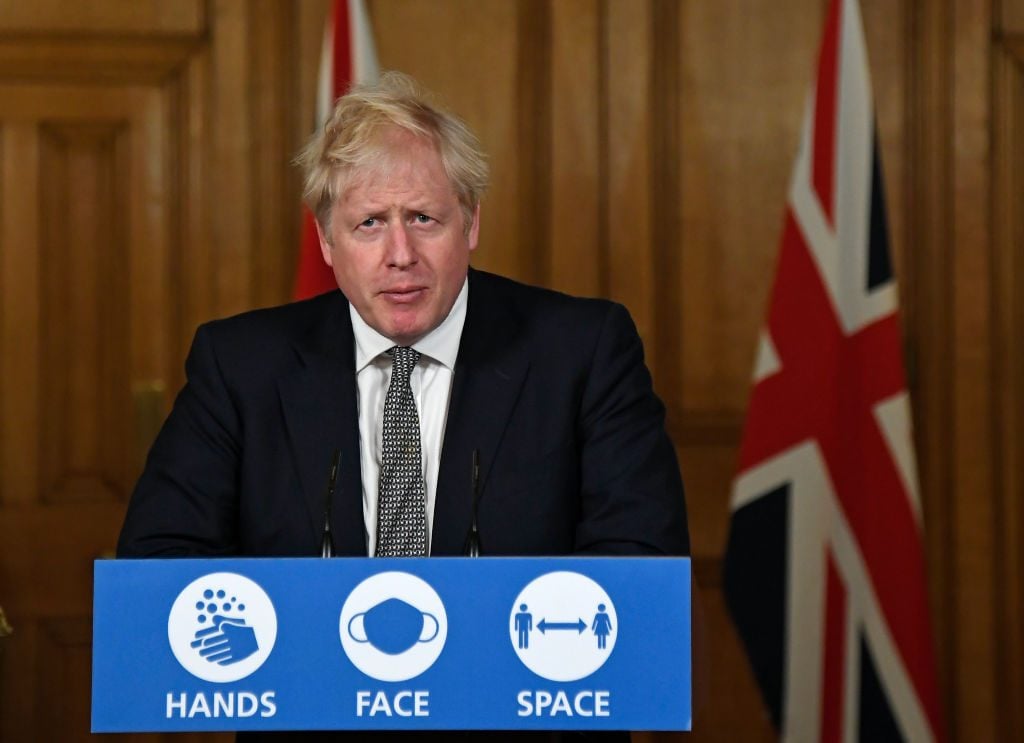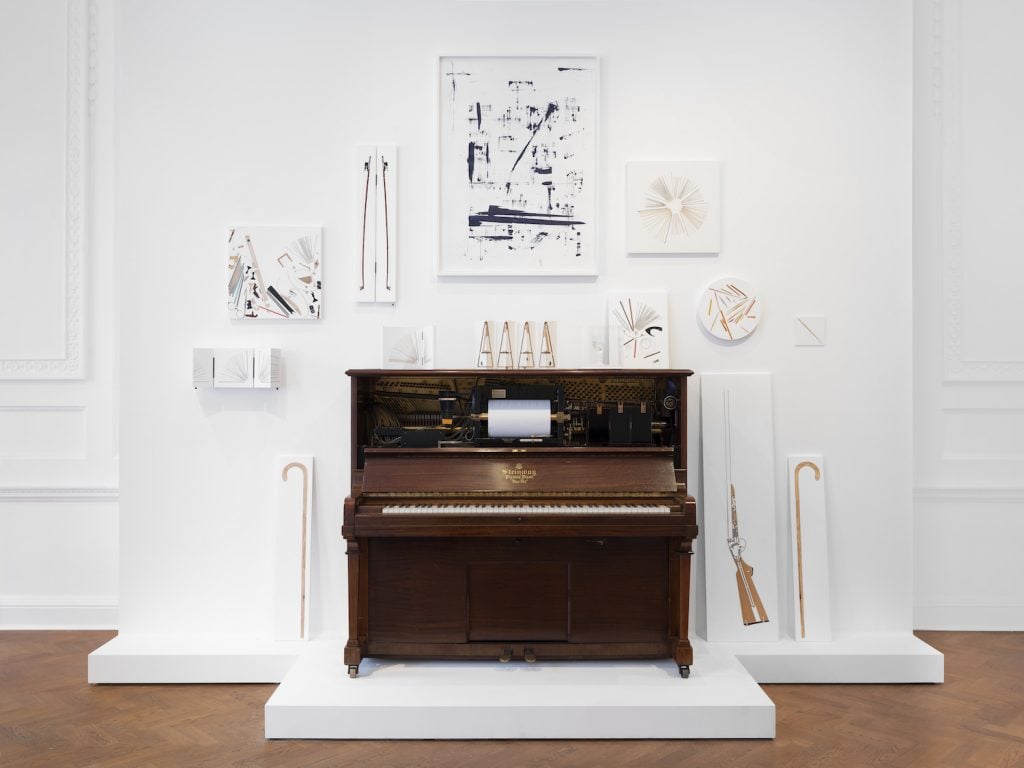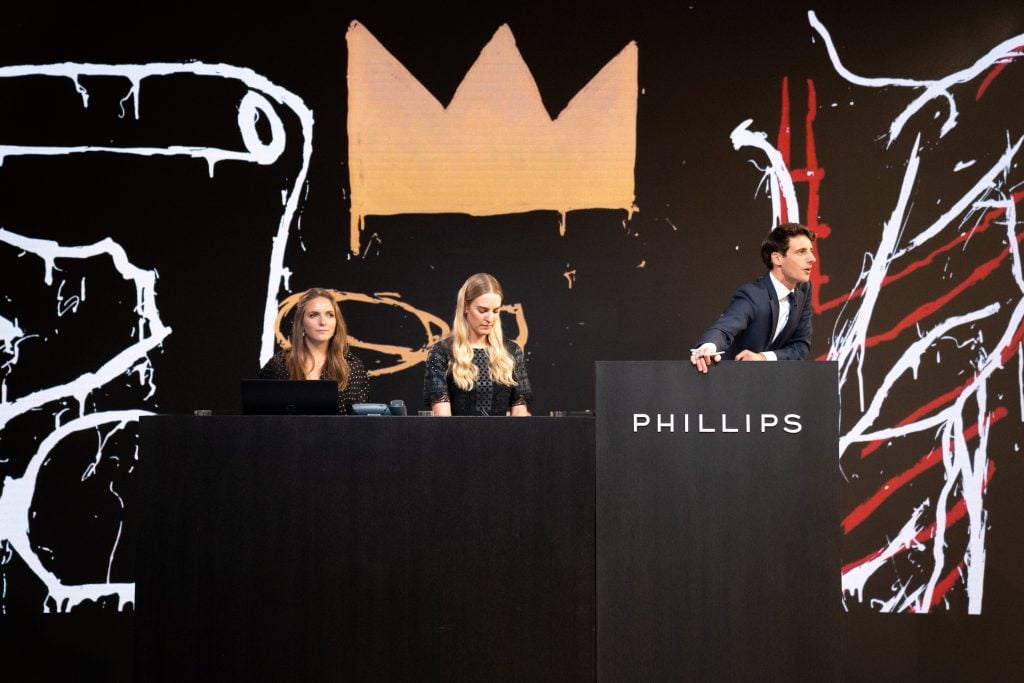Law & Politics
Still Recovering From the First Lockdown, Museums and Galleries in England Will Close Again for at Least Four Weeks
Prime Minister Boris Johnson announced the new lockdown on Saturday.

Prime Minister Boris Johnson announced the new lockdown on Saturday.

Naomi Rea

The UK government has ordered museums, commercial galleries, and auction houses across England to close beginning November 5 as part of a sweeping new national lockdown. Prime Minister Boris Johnson announced the four-week shutdown, which will last until at least December 2, during a speech on October 31. The plan will go before the House of Commons for a formal vote on Wednesday before it takes effect; it is widely expected to pass.
The decision to place the country back into lockdown is a U-turn for the government, which had been trying to avoid another substantial hit to the economy by implementing different levels of restrictions to prevent the spread of the coronavirus on a local level. The more drastic measures were taken after scientists advised on Friday that the virus was spreading faster than had been projected in even the “reasonable worst-case” planning scenario.
The move puts commercial galleries and auction houses, which are officially classified as “non-essential retail,” on ice, as well as museums, which are considered “entertainment venues,” according to the government website.

UK Prime Minister Boris Johnson speaks during a press conference in 10 Downing Street on October 31, 2020 in London, England. Photo by Alberto Pezzali-Pool/Getty Images.
The culture sector was hit hard financially during the first lockdown in the spring, and despite the government’s £1.57 billion ($2 billion) culture recovery package, a second prolonged closure is expected to put many businesses in an even more precarious situation.
A spokesperson for the British Museum tells Artnet News that it will close at 5 p.m. on November 4 and hopes to welcome visitors back in the beginning of December. But the government has not ruled out extending the lockdown should the number of cases remain higher than experts would like.
The shift will disrupt museums and galleries’ exhibition calendars, which were only just beginning to shake out after the interruptions in the spring. Tate Britain was due to open an exhibition of work by Lynette Yiadom-Boakye on November 18, while the National Gallery’s much-anticipated survey of the 17th-century protofeminist painter Artemisia Gentileschi, which had been booked solid through the end of November, must close its doors again.
Arts workers may be relieved to learn that the chancellor for the exchequer, Rishi Sunak, has extended the UK’s Job Retention Scheme for the month, in which the government subsidizes 80 percent of furloughed staff members’ salaries.
The director of the Museums Association, Sharon Heal, calls the new measures a “blow” to museums that were just getting back onto their feet after the first lockdown. In a statement, she adds that while extending the furlough scheme is a positive step, it will be “cold comfort” to the more than 3,000 people in the sector who have been made redundant in the weeks since the first scheme ended.
“The sector has benefitted from emergency funding in recent weeks, but that was to deal with the impact of the first lockdown,” she says. “Many museums are still in a very difficult financial situation and more may be required to keep some organizations afloat.” She urged the Arts Council England to distribute what remains of the rescue fund in a flexible way that allows organizations to use it in the next financial year as well.

Installation view, Oliver Beer, “Oma,” Galerie Thaddaeus Ropac, London. © Oliver Beer. Courtesy Galerie Thaddaeus Ropac, London • Paris • Salzburg. Photo: Eva Herzog
The latest lockdown also comes as a blow to galleries. The dealer Thaddaeus Ropac, who has spaces in France and Austria, where the second wave of the virus has also introduced new lockdowns, tells Artnet News that he will be closing the London space beginning Thursday. It is still unclear whether galleries will be permitted to remain open by appointment only.
“I had expected the whole of this year to be significantly financially impacted by COVID, so while this second lockdown will make it worse in many ways, the damage was already done,” Ropac says. “I’m more optimistic about things improving next year. It will still be difficult, but better than this year.”

Phillips London’s 20th century and contemporary art evening sale. Image © Thomas De Cruz Media Haydon Perrior.
Auction houses will also close, but since many employees have been working remotely since the first lockdown, it is unclear to what extent their day-to-day operations will be affected.
Phillips’s chief executive Edward Dolman tells Artnet News that his business is prepared to make any necessary adjustments. “The circumstances we find ourselves in have shed a light on new ways to interact with our clients, conduct our sales, and generally manage our business,” Dolman says, stressing the leaps and bounds the auction house has made in its digital offerings this year.
Phillips now has a custom-built studio in New York as well as in London, which means it can hold its London sales in one location or the other depending on the status of the regulations. The next big London sale is its design auction on November 12.
A spokeswoman for Sotheby’s says that the auction house will transfer a number of planned live auctions online and conduct live “studio” sales in a closed room with bids being accepted in real time from telephone and online bidders.
In the rest of the UK, museums in Wales have been closed under a “firebreak” lockdown since October 24, while Scottish museums and galleries are still permitted to remain open. Museums in Northern Ireland are closed to the public until at least November 13, and until December 1 in the Republic of Ireland.